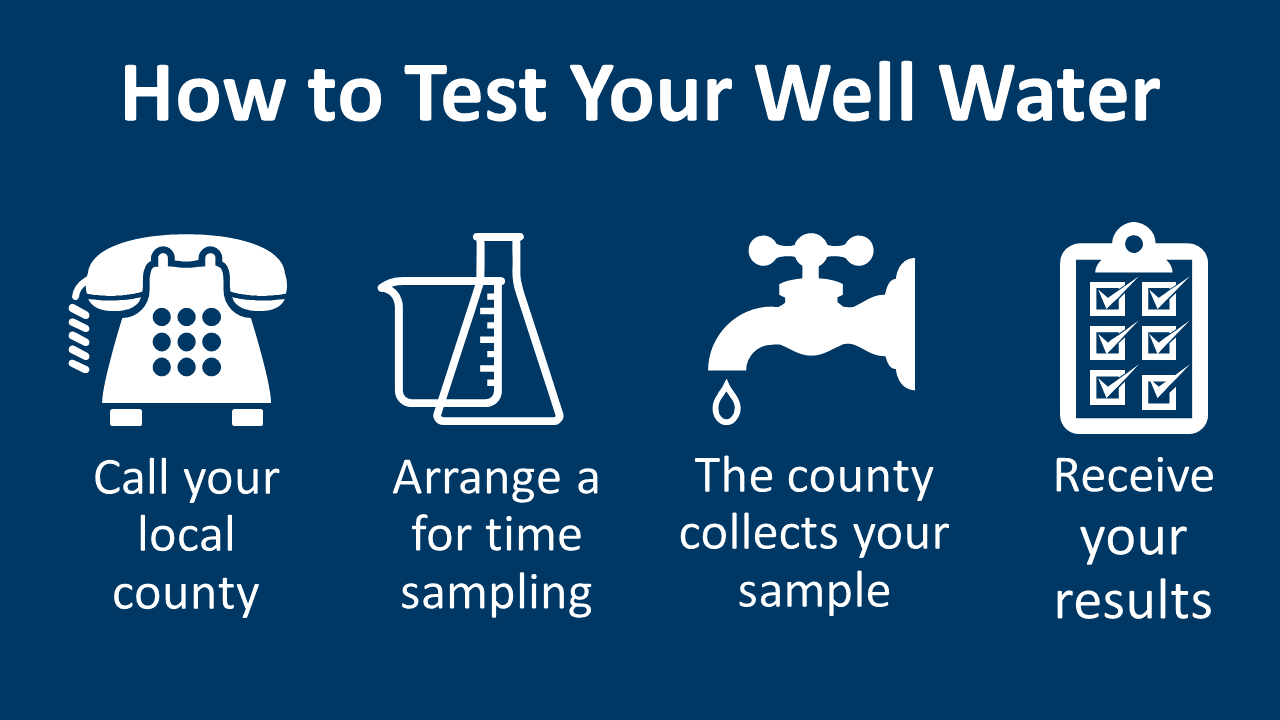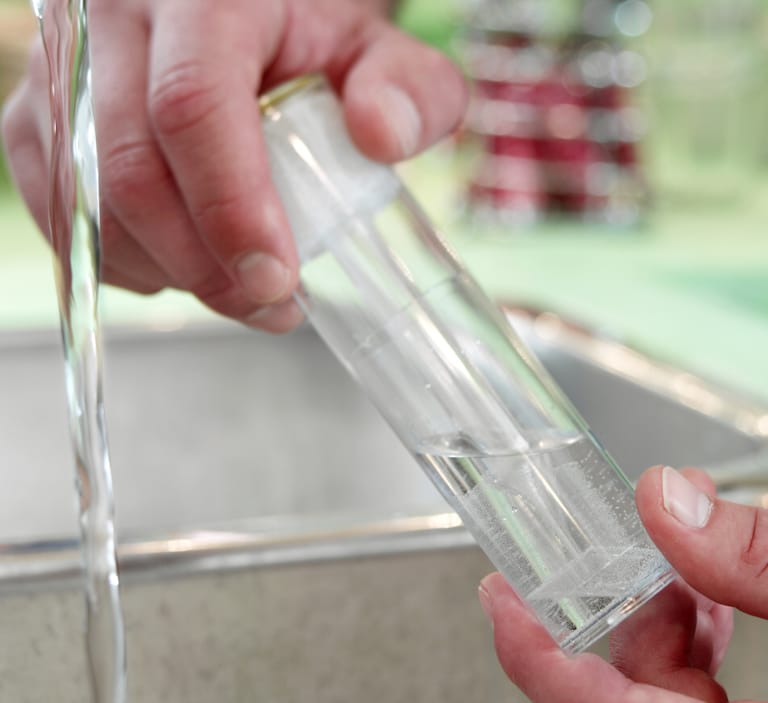4 Easy Facts About Well Water Testing Described
4 Easy Facts About Well Water Testing Described
Blog Article
What Does Well Water Testing Do?
Table of ContentsWell Water Testing Fundamentals ExplainedThe Facts About Well Water Testing RevealedWell Water Testing Things To Know Before You BuyFascination About Well Water Testing

Government agencies do not check or manage water high quality in exclusive wells, and water testing is not needed by any type of federal or state policy. If you are one of the 1. 7 million Georgians with an exclusive well, you are accountable for the quality and safety and security of your well water.
Correctly constructed and kept water wells can give several years of trouble-free solution. Surface impurities may enter the well if it is not appropriately constructed and preserved, and the well might eventually degrade or become damaged as it obtains older. On top of that, some groundwater normally contains several chemical materials at levels above the EPA's health-based criteria, called the Optimum Pollutant Levels (MCLs)
Evaluate the water as soon as each year for overall coliform microorganisms, nitrates, total dissolved solids and p, H degrees. If you presume various other impurities, you ought to test for those. In contrast, the top quality of water in malfunctioning wells may alter instantly and remain unnoticed as the water may look, odor and taste the exact same.
The Definitive Guide for Well Water Testing
Minimum Screening Recommendations Well, Maintenance Yearly All geographical regions Nitrates (Overall Nitrate and Nitrate+Nitrite) Yearly Annual Fundamental Water Chemistry (see listed below) plus Alkalinity, Soluble Salts (or Complete Dissolved Solids), Nitrate, Chloride, Fluoride and Sulfate Originally and after that every 3 years p, H, Firmness, Aluminum Calcium, Chromium, Copper, Iron, Magnesium, Manganese and Zinc Each year after initialcomprehensive water chemistry Added Checking Recommendations Confirmation of Prospective Contamination A minimum of as soon as and afterwards yearly follow-up for:1) residences with pipes that pre dates the 1987 pipes codes with copper piping with lead solders2) extremely old houses in which there are lead pipes3) houses with brass and/or chrome components (brass includes 3-8% lead; chrome fixtures consists of lead) All geographicalregions A minimum of as soon as and after that a yearly follow-up Southern Coastal Level region below the "Loss Line" on the, Georgia map At the very least as soon as and afterwards an annual follow-up Piedmont-Blue Ridge areas over the "Autumn Line" on the Georgia map Volatile and Semi-volatile Organic Compounds, Chemicals, Petroleum Hydrocarbons and Various other Organics Not needed on a regular interval; advised only when contamination is suspected. Well Water Testing.
Samples accumulated from a kitchen area tap would mirror the source water buildings plus any type of possible contamination from the well owner's water supply system. Sampling at the wellhead for lead is not essential, however tasting from the faucet for lead would suggest if lead solder was utilized in the pipes.

The main MCLs have been evaluated concentrations that offer a large margin of security from damaging health effects for many people over a lifetime of alcohol consumption. Even though primary MCLs are enforceable criteria for PWSs just, exclusive well owners might select to follow these criteria to secure themselves from the potential wellness danger of drinking polluted water.
Our Well Water Testing PDFs
The drinking water standard for nitrate is 10 ppm; above this degree nitrate can have adverse results on human health, particularly babies under the age of 6 months. Chemicals are materials used to avoid, ruin, push back, or minimize parasites.
Cyanazine breaks down in the environment into different chemicals. A few of the malfunction items of cyanazine have actually been identified in Minnesota water. Chemical evaluation in water examples can be pricey and using details chemicals can differ throughout the state making it hard to recognize which chemical to assess.
Based upon this, we advise that you speak to the MDA before sampling your well for pesticides. The cumulative or compounding health risk related to low degrees of numerous pesticides in drinking water is not well understood at this time. Well Water Testing. Generally, vulnerable populaces such as babies, kids, and pregnant/nursing ladies are at greatest risk
We are currently sampling wells for nitrate in towns with vulnerable groundwater which have substantial row crop production for nitrate as component find more information of the Territory Testing Program (TTP). Greater than 70,000 exclusive wells proprietors will be offered nitrate screening in over 300 municipalities. House owners are provided a pesticide examination with the Private Well Chemical Tasting (PWPS) Project if nitrate is detected in their initial municipality testing example.
Not known Factual Statements About Well Water Testing
The MDH suggests making use of a certified lab to test your water. To determine a research laboratory to more have your well water evaluated, go to Minnesota Department of Wellness (MDH) Licensed Ecological Laboratories. The tailored search tab on this web page allows you to browse for a lab that accepts samples from personal homeowners.
When feasible, it is best to eliminate sources of contamination or replace an infected water with a more secure water instead of count on a home water treatment unit. Likewise, the cost to check for chemicals in water may surpass the expense of a point-of-use home treatment system, such as reverse osmosis for drinking water.
If you make a decision to install a home water therapy device, the unit (or devices) you select ought to be accredited and classified to reduce or get rid of the compound you are worried regarding. If there is greater than one material you want gotten rid of from your water, you may need to incorporate a number of therapy processes right into one system.
Report this page